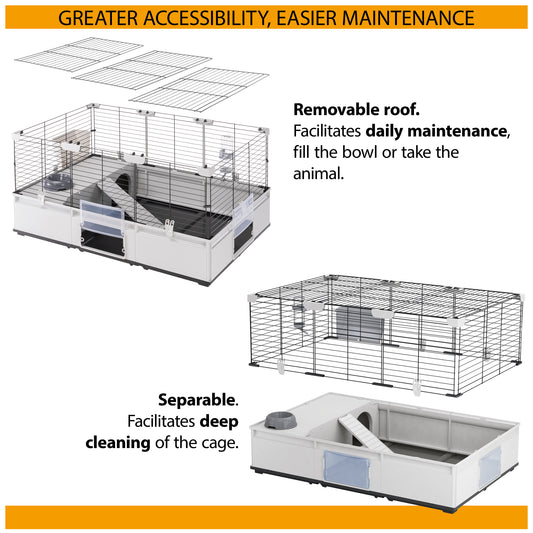Why does my cat sleep so much?
The average cat sleeps 15 hours a day and older cats and kittens can spend as many as 20 hours asleep in a 24-hour period. You might think they’re lazy, but cats need this amount of sleep to enable them to be effective hunters. Pet cats have kept the hunting instincts of their wild ancestors and as a result have retained the same sleeping patterns.
When cats are active
Cats are crepuscular, meaning they are at their most active at dawn and dusk. This is the best time for hunting because their main prey – rodents and birds – are also at their most active. Sleeping outside of these times enables cats to recharge after a hunt and conserve their energy for when they need it most. The acts of running, climbing, stalking and pouncing use up a huge amount of energy for a cat, whether their prey is a real animal or a multi-coloured toy. In the wild a cat would have a short burst of activity while they are hunting, followed by a meal and a restorative nap.
Cats can adapt their sleeping patterns to fit in with family life. A study carried out in 2013 by the University of Messina, Italy, looked at the daily patterns of activity in domestic cats and found that they have adjusted their sleeping patterns to fit in with the lifestyles of their owners. This means cats tend to sleep while their owners are at work so that they are able to be more active when their owners return.
It’s not all deep sleep
As well as periods of deep sleep where cats experience rapid eye movement for about five minutes, they doze for longer periods. This is where we get the term ‘cat nap’.
About three quarters of a cat’s sleep is a shallow doze known as slow-wave sleep, in which their senses of hearing and smell are kept ‘switched on’ in case predators or prey come near. In this snoozing state a cat can spring into action very quickly – as if they are sleeping with one eye open! Cats alternate between periods of deep sleep and dozing during their sleep cycle until they wake.
When to be concerned
Cats will naturally get what they need in terms of sleep as they will listen to their bodies and rest accordingly. However, if you notice sudden changes to your cat’s sleeping patterns it could be a sign of illness so you should mention it to your vet. A cat that has become depressed could begin sleeping more than usual, so ensure your pet has an enriching life. This can be more of a challenge with indoors only cats who will need more owner-engagement in play.
Cats can also pretend to be asleep if they find themselves in a stressful situation. If you notice that your cat remains tense while appearing to be at rest, it could be that they are trying to block out something in their environment that is causing them stress. Look for raised ears, tense muscles, or their tail being tightly wrapped underneath their body.
Proper sleep is important for an effective immune system as well as overall health. It has the same benefits for humans too, so perhaps we should all be enjoying more cat naps!
Shop All Cat
If you found this article interesting, you may like:
Why does my cat bring me dead mice and birds?









